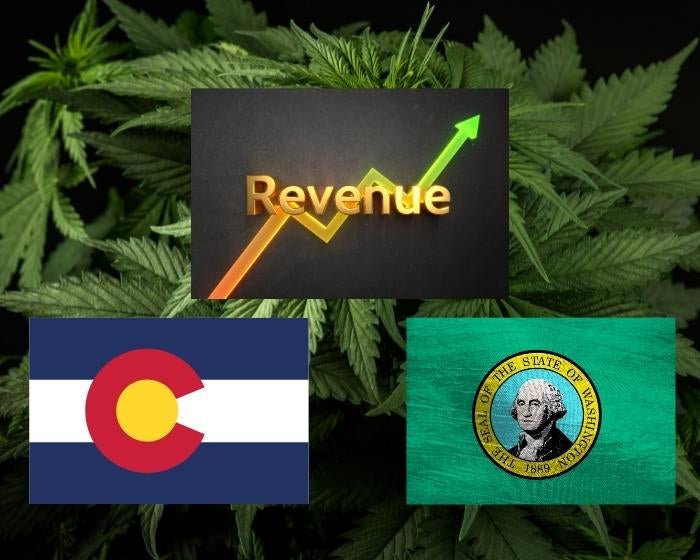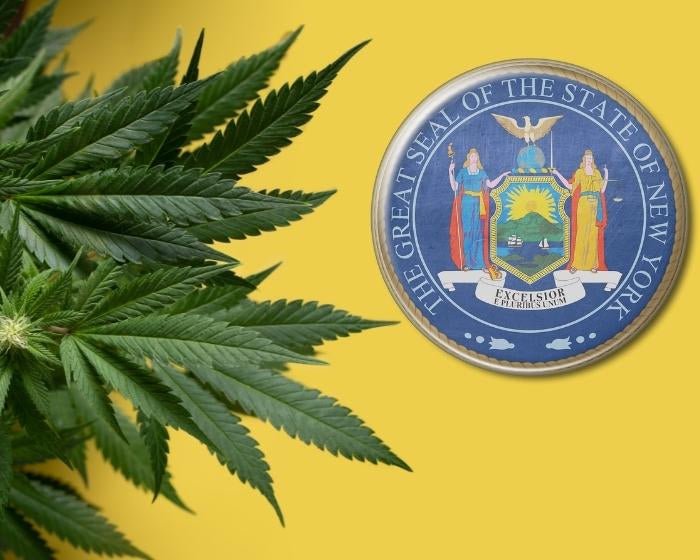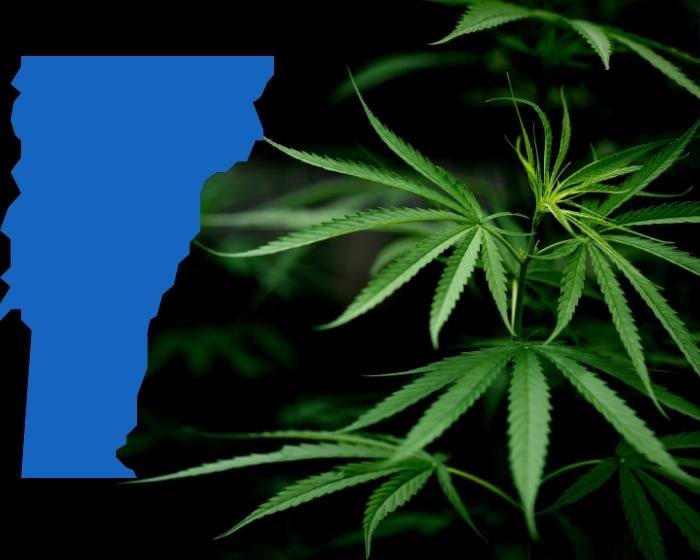A new report finds that Colorado and Washington received more tax revenue from marijuana sales than alcohol or cigarettes in the 2022 fiscal year.

According to a new report published by the Tax Policy Center, for the fiscal year 2022, the states of Colorado and Washington took in more tax revenue from legal cannabis sales than they did for alcohol or cigarettes.
The study found that in Fiscal Year 2022, Colorado collected $353.7 million in marijuana tax dollars. This total just exceeded cigarette tax revenue but was close to seven times that of the state’s total received alcohol taxes.
Likewise, Washington State took in $517 million in cannabis taxes, compared to about $490 million from alcohol and $380 million from cigarettes.
What makes these findings even more remarkable is the fact that tax revenue declined significantly in Colorado and Washington from 2021 to 2022, at -14% and -7%, respectively.
Regarding the findings, the Center tweeted, “19 states now have enacted taxes on recreational marijuana purchases, but the tax regimes vary quite a bit. Over time, states can collect a significant amount of revenue, and Colorado and Washington collected more from taxes on cannabis than alcohol or cigarettes in 2022.”
"19 states now have enacted taxes on recreational marijuana purchases, but the tax regimes vary quite a bit. Over time, states can collect a significant amount of revenue, and Colorado and Washington collected more from taxes on cannabis than alcohol or cigarettes in 2022.”
- Tax Policy Center via Twitter
One of the more interesting discoveries outlined in the policy report concerns the “tax regime” variation mentioned in the tweet. Unlike alcohol and cigarettes, there is no base tax levied on marijuana sales in the US.
The study shares, “There is no standard cannabis tax in the US the way there is an alcohol tax, cigarette tax, and gas tax. Instead, governments use three different types of marijuana taxes: a percentage-of-price tax, a weight-based tax, and a potency-based tax. In addition, different states use different taxes, and some states levy multiple taxes.”
"There is no standard cannabis tax in the US the way there is an alcohol tax, cigarette tax, and gas tax. Instead, governments use three different types of marijuana taxes: a percentage-of-price tax, a weight-based tax, and a potency-based tax. In addition, different states use different taxes, and some states levy multiple taxes.”
- Tax Policy Center Report on Cannabis Tax Revenue
This lack of uniformity is why certain states have generated more tax revenue through cannabis sales than alcohol or cigarettes while others with legal adult-use marijuana have not. As the report notes, “Among all 11 states that collected cannabis tax revenue for the entire 2022 fiscal year, eight collected more revenue from cannabis taxes than alcohol taxes.”
And Nevada was the only other state, besides Colorado and Washington, that brought in more from marijuana than cigarettes.
Backing up the results outlined in the Tax Policy Center report, this past April, the Institute on Taxation and Economic Policy released an analysis that evaluated 11 states with legal adult-use marijuana. It found that, on average, “cannabis revenues outperformed alcohol by 20% in 2021."
"Cannabis revenues outperformed alcohol by 20% in 2021.”
- Institute on Taxation and Economic Policy Report
These statistics further fuel the fire for full nationwide legalization of recreational cannabis for supporters and stakeholders. They not only highlight the financial opportunity afforded through legalization but by offering regulated access to marijuana, people will more likely be discouraged from using harmful drugs like tobacco and alcohol.
Along with the hard economic data provided by these two reports, poll after poll demonstrates that Americans believe cannabis to be less harmful than and even beneficial compared to alcohol and cigarettes. And as more states come online with their recreational marijuana use programs, the numbers will no doubt continue to mount in favor both from an economic and societal standpoint of the nationwide legalization of adult-use cannabis for all Americans.







































